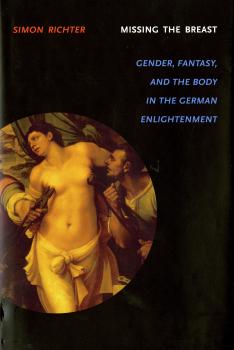Literary Conjugations
Скачать книги из серии Literary ConjugationsThe Little Everyman
Eighteenth-century English literature, art, science, and popular culture exhibited an unprecedented fascination with small male bodies of various kinds. Henry Fielding's Tom Thumb plays drew packed crowds, while public exhibitions advertised male dwarfs as paragons of English masculinity. Bawdy popular poems featured diminutive men paired with enormous women, and amateur scientists anthropomorphized and gendered the «minute bodies» they observed under their fashionable new pocket microscopes. Little men, both real and imagined, embodied the anxieties of a newly bourgeois English culture and were transformed to suit changing concerns about the status of English masculinity in the modern era. The Little Everyman explores this strange trend by tracing the historical trajectory of the supplanting of the premodern court dwarf by a more metaphorical and quintessentially modern «little man» who came to represent in miniature the historical shift in literary production from aristocratic patronage to the bourgeois fantasy of freelance authorship. Armintor's close readings of Pope, Fielding, Swift, and Sterne highlight little recognized aspects of classic works while demonstrating how the little man became an «everyman.»
The Tooth That Nibbles at the Soul
The Tooth that Nibbles at the Soul brings together Marshall Brown’s new and previously published writings on literature and music. These essays engage questions that are central to the development of literature, music, and the arts in the period from Romanticism at the end of the eighteenth century to the avant-garde movements of the early twentieth, a period in which the modern evolution of the arts is coupled with a rise in the significance of music as artistic form.With a special focus on lyric poetry and canonical composers including Mozart, Bach, Beethoven, Brahms, and Schubert, Brown ties the growing prominence of music in this period to the modernist principle of abstraction. Music, as Brown provocatively notes, conveys meaning without explicitly saying anything. This principle of abstraction could be taken as the overriding formula for modernist art in general; and it explains why in this period music becomes the model to which all the other arts, in particular painting and literature, aspire.Brown’s title, taken from a poem by Emily Dickinson, reminds us that abstraction – musical and artistic – is anything but toothless; indeed, it “nibbles at the soul” in subtle and enduring ways. Throughout his wide-ranging and erudite analysis, Brown’s goal is to pinpoint the nature of music’s bite and to illuminate the shared elements of literature and music.While there are many previous comparisons of music and poetry, few are systematic or based on a solid knowledge of both literary criticism and musicology. Brown’s essays can be enjoyed by a general, well-read public not trained in either music or eighteenth-century literature, as well as by an audience steeped in sophisticated (if not technical) musical analysis.
The Linguistics of Lying And Other Essays
Can language hide thoughts? This question, posed by the German Academy for Language and Literature in 1965 as the topic of its first essay competition, was taken up by the philologist Harald Weinrich, with far-ranging results. The most immediate was his claiming first prize with this volume's title essay, published the following year as Linguistik der Luge. Weinrich's influential essay, now in its sixth printing in Germany, is presented here for the first time in English, with an updated preface by the author and additional essays selected by him.With wit and clarity, Weinrich brings sophisticated thinking about semantics to bear on the question of how, and how much, language corresponds to thought. He argues that lying is a function not of words but of sentences; it belongs to the semantic aspect of language. His survey of the different ways in which language is untrue forges striking links between linguistic and literary categories on the one hand and ethics and even good manners on the other.In contrast with scholars of an earlier generation, for whom literary and cultural theory circumscribed the issue of style within a fixed aesthetic framework, Weinrich demonstrates that stylistic analysis is closely linked with analysis in the domains of sociology and anthropology. The essays «Jonah's Sign: On the Very Large and the Very Small in Literature,» «Politeness, an Affair of Honor,» «Politeness and Sincerity,» and «The Style Is the Man Is the Devil» complement «The Linguistics of Lying» in their focus on real and false representations in literature and in life, and notably on the immensely destructive lies, Adolf Hitler's in particular, that marked the politics of the twentieth century.






